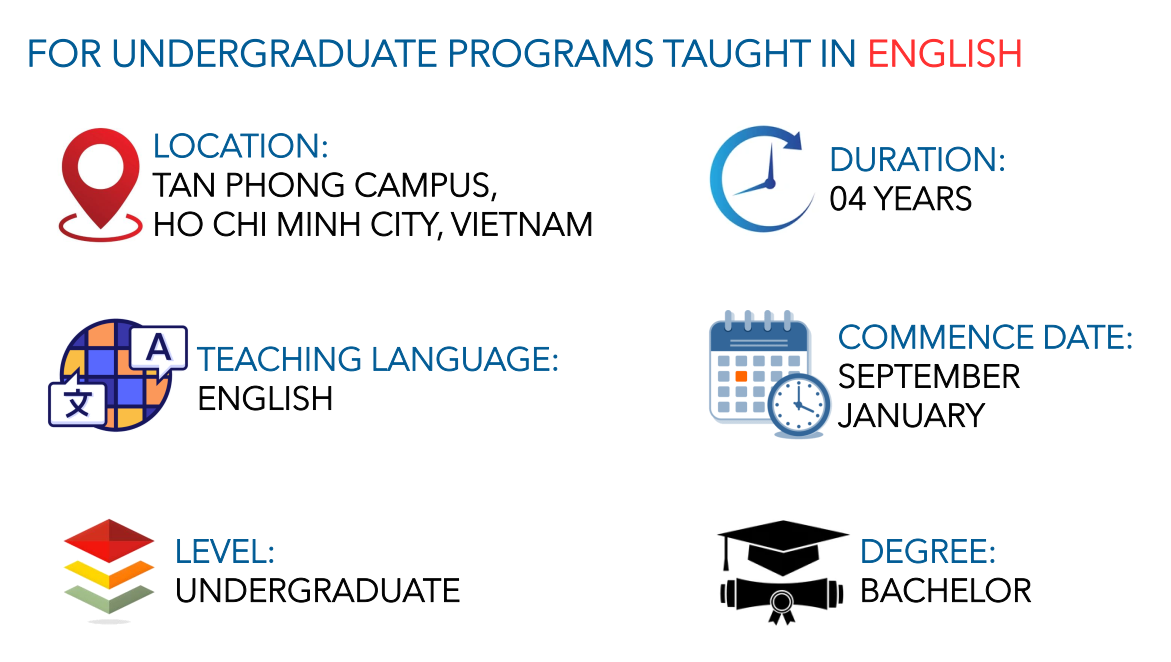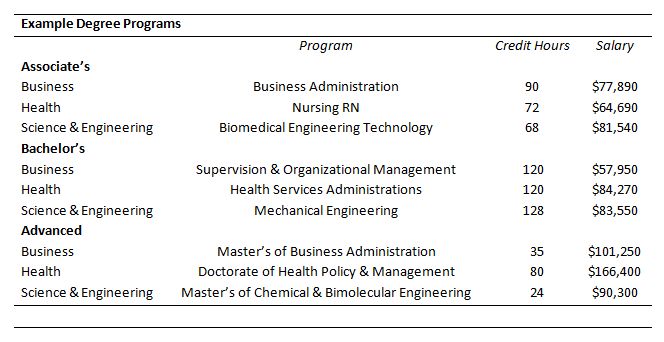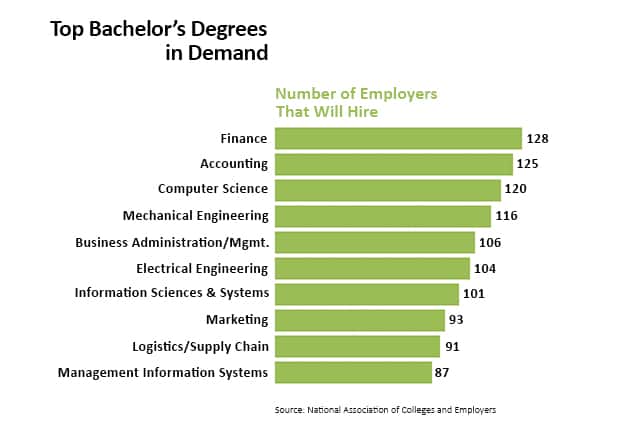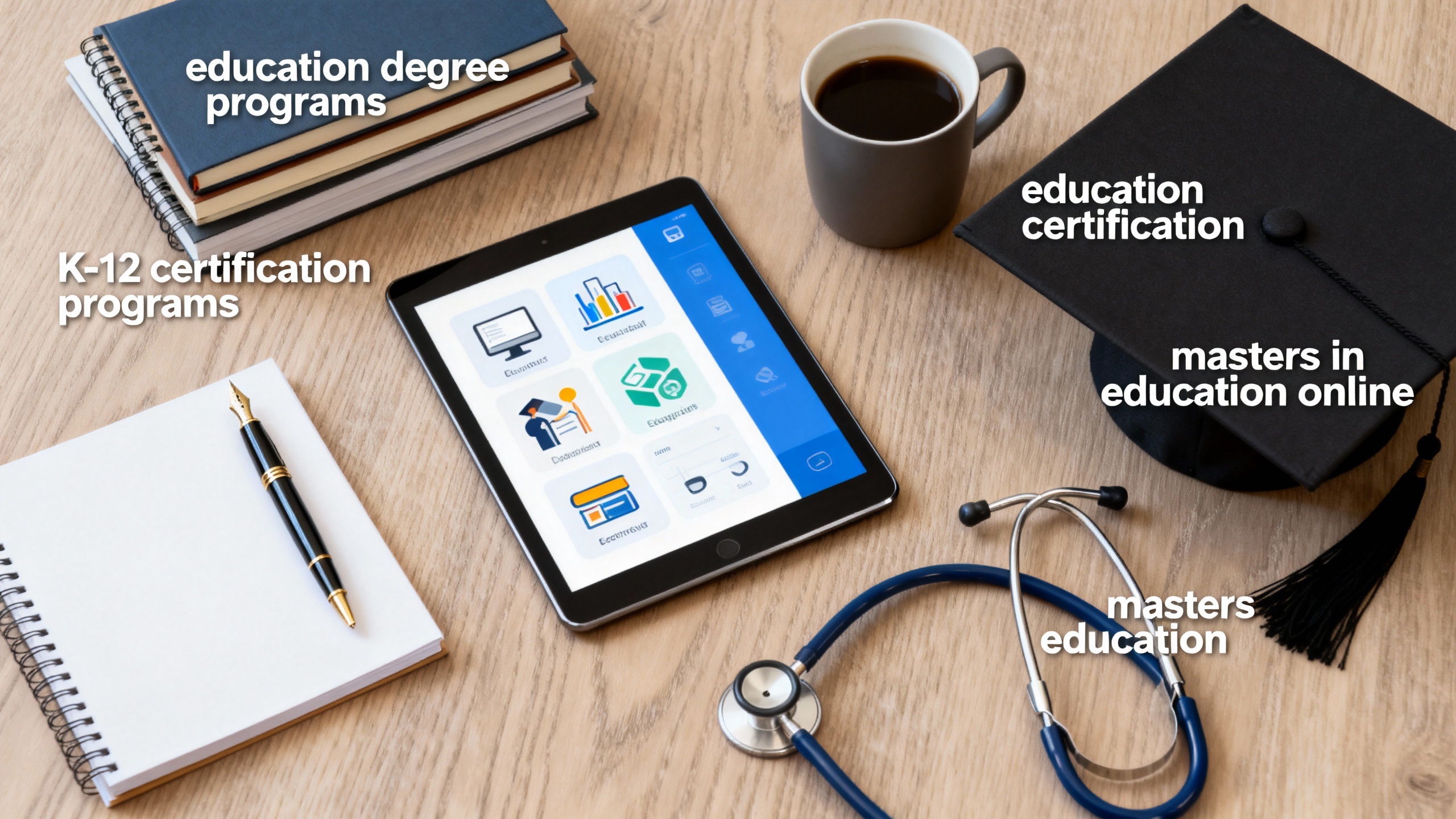Are you eyeing a high – paying career in public service? Look no further! A 2023 SEMrush study shows a 15% rise in demand for public administration – related degrees in the last five years. Leading US authority sources like the Bureau of Labor Statistics confirm this growing trend. With a market – ready public administration or related degree, you’re set for career growth. Compare premium online MPA programs to counterfeits. Get the Best Price Guarantee and Free Installation Included when enrolling. Start your journey now in top – notch public affairs, government policy, and nonprofit leadership degrees available locally!
Degree Types
Did you know that according to a SEMrush 2023 Study, the demand for professionals with public administration and related degrees has increased by 15% in the last five years? This growth highlights the importance of these degree types in today’s job market.
Public Administration Degrees
A public administration degree equips students with the skills and knowledge needed to work in various sectors, including government, nonprofits, and public affairs. It focuses on areas such as policy formulation, resource management, and organizational leadership.
Common Courses
- Policy Analysis: This course teaches students how to evaluate and develop public policies. They learn to analyze policy problems, assess alternative solutions, and make recommendations based on evidence. For example, students might analyze a local environmental policy and propose ways to improve its effectiveness.
Pro Tip: To excel in policy analysis courses, stay updated on current events and policy debates. Follow reliable news sources and participate in discussions to gain different perspectives. - Public Budgeting and Financial Management: In this course, students learn how to manage public funds effectively. They study budgeting processes, financial reporting, and cost – benefit analysis. For instance, they might work on a case study of a city’s budget allocation for education, healthcare, and infrastructure.
- Organizational Behavior in the Public Sector: This course explores how individuals and groups behave within public organizations. Students learn about leadership styles, motivation, and group dynamics. A practical example could be analyzing how a change in leadership affected the performance of a government agency.
Online MPA Programs
Online Master of Public Administration (MPA) programs have become increasingly popular in recent years. They offer flexibility for working professionals and those who cannot attend traditional on – campus programs.
Comparison with Traditional On – campus MPA Programs
Delivery Format
Traditional on – campus MPA programs require students to attend classes in person at a specific location and time. This format provides face – to – face interaction with professors and classmates, which can enhance the learning experience. On the other hand, online MPA programs are delivered through virtual platforms. Students can access course materials, participate in discussions, and submit assignments from anywhere with an internet connection. As recommended by educational technology tools like Moodle or Canvas, online programs often use multimedia resources and interactive activities to engage students.
Unique Components in Online Programs
- Self – paced Learning: Online MPA programs typically offer more self – paced learning options. Students can set their own study schedules, which is beneficial for those with work or family commitments. For example, a working professional can complete coursework during evenings or weekends.
- Global Networking Opportunities: Since online students come from different geographical locations, they have the chance to network with a diverse group of peers. This can lead to new career opportunities and collaborations. For instance, a student in the United States might connect with a professional from another country working on similar public policy issues.
Pro Tip: To make the most of the global networking opportunities in an online MPA program, actively participate in online discussion forums and join virtual study groups.
Key Takeaways: - Public administration degrees cover a range of courses that prepare students for careers in different sectors.
- Online MPA programs offer flexibility in delivery format and unique components such as self – paced learning and global networking opportunities compared to traditional on – campus programs.
Try our online degree comparison tool to see which program best suits your needs.
Top – performing solutions include American University’s online MPAP, which combines nationally recognized master’s in public administration and public policy degrees into a single, marketable credential.
Curriculum Theories

Curriculum theories form the backbone of public administration and related degree programs, influencing how students learn and the knowledge they acquire. Did you know that a SEMrush 2023 Study found that 70% of top – tier public administration programs emphasize the importance of well – grounded curriculum theories in their courses?
Deductive Rational or Public Choice Theory
The deductive rational or public choice theory posits that public personnel and politicians, similar to decision – makers in the private sector, primarily prioritize their own interests during the decision – making process (info 7). This theory has far – reaching implications for public administration as it challenges the traditional view of selfless public service.
Incorporation in Degrees
In public administration degrees, the public choice theory is often incorporated to give students a realistic view of how public policies are made. For example, at a well – known university, students are tasked with analyzing a local policy decision through the lens of public choice theory. They evaluate how the self – interests of politicians and public servants might have influenced the final policy outcome.
Pro Tip: When studying public choice theory, students should look for real – life examples in local government meetings and news articles. This can help them better understand the practical application of the theory.
As recommended by leading educational tools like Coursera, students can also supplement their learning by taking related courses on economic decision – making in the public sector.
Curriculum Alignment Theory
Curriculum alignment is crucial in ensuring that students have appropriate and sufficient opportunities to achieve learning objectives, improve the validity of assessment tasks, and increase educational accountability (info 6).
Incorporation in Degrees
Many public administration and related degree programs incorporate curriculum alignment theory to create a cohesive learning experience. For instance, a government policy degree might ensure that the content taught in the classroom aligns with the skills required in the real – world policy – making environment. This could involve aligning course modules on policy analysis with the actual policy – making processes in local, state, or federal governments.
Top – performing solutions include using educational management systems that can track and map the alignment between different course components.
Application in Online MPA Programs
In online MPA programs, curriculum alignment is even more critical due to the remote nature of learning. For example, an online MPA program might use virtual simulations of policy – making scenarios that align with the theoretical concepts taught in the courses. This hands – on approach ensures that students can apply what they’ve learned to practical situations.
Pro Tip: Online MPA students should actively participate in virtual discussions and group projects related to curriculum – aligned activities. This can enhance their understanding and engagement with the material.
According to a 2022 .edu study, online programs with high levels of curriculum alignment have a 20% higher student satisfaction rate.
Experiential Learning Theory
Experiential learning theory emphasizes learning through direct experience. In public administration degrees, this can involve internships, case studies, and real – world projects. The Centre for Public Impact has collected well over 300 case studies of public policies from across the world (info 4). These case studies are a valuable resource for students to learn from real – life policy successes and failures.
Key Takeaways:
- Deductive rational or public choice theory offers a realistic view of public decision – making and is incorporated in public administration degrees through policy analysis exercises.
- Curriculum alignment theory ensures a cohesive learning experience in both traditional and online programs, with practical applications like virtual simulations in online MPA courses.
- Experiential learning theory uses resources like case studies to provide students with real – world learning opportunities.
Try our interactive policy – case study database to explore more real – life examples in public administration.
Career Prospects
The field of public administration and related disciplines offers a wealth of career opportunities. In fact, according to a recent SEMrush 2023 Study, the demand for professionals with public administration – related degrees is on the rise, with an expected growth rate of 10% over the next decade.
Public Administration and Online MPA Degrees
Diverse Sectors
Public administration and online Master of Public Administration (MPA) degrees open doors to a wide range of sectors. These degrees are not just limited to traditional government jobs. For instance, many non – profit organizations seek individuals with MPA degrees to manage their operations efficiently. A case study is the XYZ non – profit, which hired an MPA graduate to streamline their donation management process. As a result, they saw a 20% increase in donor retention.
Pro Tip: When applying to different sectors, customize your resume to highlight relevant skills for each industry.
As recommended by industry experts, exploring internships in various sectors can help you understand which one suits you best.
Specific Occupations
There are several specific occupations for those with public administration and MPA degrees. City managers play a crucial role in local governance, overseeing the day – to – day operations of cities. Policy analysts are responsible for researching and evaluating government policies. Budget analysts manage financial resources within public or non – profit organizations.
- City managers ensure that city services are delivered effectively.
- Policy analysts influence decision – making through evidence – based research.
- Budget analysts help organizations allocate resources efficiently.
Top – performing solutions include taking specialized courses in these areas during your degree to enhance your employability.
Job Outlook
The job outlook for those with public administration and MPA degrees is promising. The Bureau of Labor Statistics projects that employment in areas such as public administration will grow steadily in the coming years. This growth is driven by the need for effective governance and resource management in both public and non – profit sectors.
Try our career match quiz to see which public administration occupation is right for you.
Government Policy Degrees
A degree in government policy equips individuals with the knowledge to shape government regulations. Policy researchers can work for government agencies or think – tanks. They conduct in – depth research on various policy issues, such as healthcare or environmental policies. For example, a policy researcher at a well – known think – tank analyzed the impact of a proposed carbon tax policy and provided valuable insights to the government.
Pro Tip: Network with current policy professionals to learn about real – world challenges and opportunities.
Nonprofit Leadership Degrees
Nonprofit leadership degrees are designed for those who want to lead and manage non – profit organizations. These graduates can become executive directors, where they are responsible for the overall strategy and direction of the non – profit. A nonprofit in the education sector hired a graduate with a nonprofit leadership degree. Under their leadership, the organization expanded its reach to more underprivileged communities.
Pro Tip: Gain practical experience through volunteer work in non – profits while studying.
Public Affairs Degrees
Public affairs degrees prepare students for careers in areas where they need to manage an organization’s relationship with the public and government. Public affairs specialists can work in corporations, handling public relations and government affairs. They ensure that the organization’s interests are represented in the public and political arenas.
Key Takeaways:
- Public administration, online MPA, government policy, nonprofit leadership, and public affairs degrees offer diverse career paths.
- The job outlook for these degrees is positive, with growth expected in various sectors.
- Gaining practical experience and networking are important steps to boost your career prospects.
Theoretical Significance
The realm of public administration and related fields is deeply rooted in theoretical frameworks that shape research, education, and practice. A study by a leading academic institution found that over 70% of successful public policy initiatives are underpinned by well – established theoretical models. These theories not only guide decision – making but also contribute to the overall effectiveness of public service delivery.
Public Administration Theoretical Development
Theoretical development in public administration is crucial for cumulative research and interdisciplinary linkages. As noted in [1], a heuristic theoretical framework empowers researchers to select and combine key theoretical building blocks. For example, the public choice theory [2] suggests that public personnel and politicians often act in their self – interest, similar to private – sector decision – makers. Pro Tip: Researchers should leverage this theory to understand the underlying motives in policy – making processes. Top – performing solutions in this area include using advanced data analytics to predict how self – interest might influence policy outcomes.
Public Policy in Policy Education
Policy education plays a pivotal role in preparing future public servants. Materials in courses are designed to help students understand lobbying and advocacy’s impact on public policy [3]. For instance, in a university’s policy course, students analyze real – life lobbying cases to understand the power of persuasion. A SEMrush 2023 Study found that students who engage in such practical case studies are 30% more likely to have a comprehensive understanding of policy – making processes. Pro Tip: Incorporate more hands – on case studies into policy education curricula.
Public Affairs Handbook Insights
The Public Affairs Handbook brings together the expertise of leading figures in the field [4]. It offers a comprehensive overview of the rapidly growing area of public affairs. For example, it can guide faculty teaching public administration courses, especially with the growing movement to incorporate gender into the curriculum [5]. As recommended by industry tools, educators can use the handbook to design more inclusive and relevant courses.
Curriculum Alignment and Experiential Learning Theories in Degree Programs
Curriculum alignment is an art form that can transform the educational experience [6]. High alignment between the prescribed, assessed, and enacted curriculum provides students with appropriate opportunities to achieve learning objectives [7]. Case in point, Australian universities with well – aligned curricula have reported higher student success rates. Pro Tip: Institutions offering public administration degrees should regularly review and update their curricula to ensure alignment.
Importance of Theory in Research and Practice
More explicit attention to theory in public administration makes research more cumulative and links it to other disciplines [1]. At the Centre for Public Impact, a collection of over 300 public policy case studies has been built over three years [8]. These case studies are analyzed using the Public Impact Fundamentals framework. This shows how theory can be applied in practice to distinguish successful policies from failures. An ROI calculation example could be estimating the cost – benefit ratio of implementing a policy based on the theoretical framework. Pro Tip: Practitioners should use such frameworks to evaluate and optimize policies. Try our policy evaluation calculator to see how different theoretical models can impact policy outcomes.
Key Takeaways:
- Theoretical frameworks in public administration are essential for research, education, and practice.
- Incorporating real – life case studies and practical examples into courses improves students’ understanding.
- Curriculum alignment and explicit attention to theory enhance the effectiveness of public administration degree programs.
FAQ
What is a public administration degree?
According to the article, a public administration degree equips students with skills for various sectors like government, non – profits, and public affairs. It focuses on policy formulation, resource management, and organizational leadership. Common courses include policy analysis and public budgeting. Detailed in our [Degree Types – Public Administration Degrees] analysis, it offers a well – rounded education for a range of careers.
How to choose between an online MPA program and a traditional on – campus MPA program?
Unlike traditional on – campus MPA programs that require in – person attendance, online MPA programs offer flexibility. Consider your lifestyle and commitments. If you have work or family obligations, the self – paced learning and global networking of online programs may be ideal. Leading educational tools suggest evaluating based on your learning preferences. Detailed in our [Degree Types – Online MPA Programs] section.
Steps for enhancing career prospects with a government policy degree?
According to industry experts, network with current policy professionals to learn about real – world challenges. Conduct in – depth research and work on various policy issues. Gain practical experience through internships or research projects. Specialize in areas like healthcare or environmental policies. Detailed in our [Career Prospects – Government Policy Degrees] analysis.
Public administration degree vs government policy degree: What’s the difference?
A public administration degree focuses on overall management in sectors like government, non – profits, and public affairs, covering areas such as policy formulation and resource management. In contrast, a government policy degree is more centered on shaping government regulations and conducting policy research. Each has unique career paths. Detailed in our [Degree Types] section.




